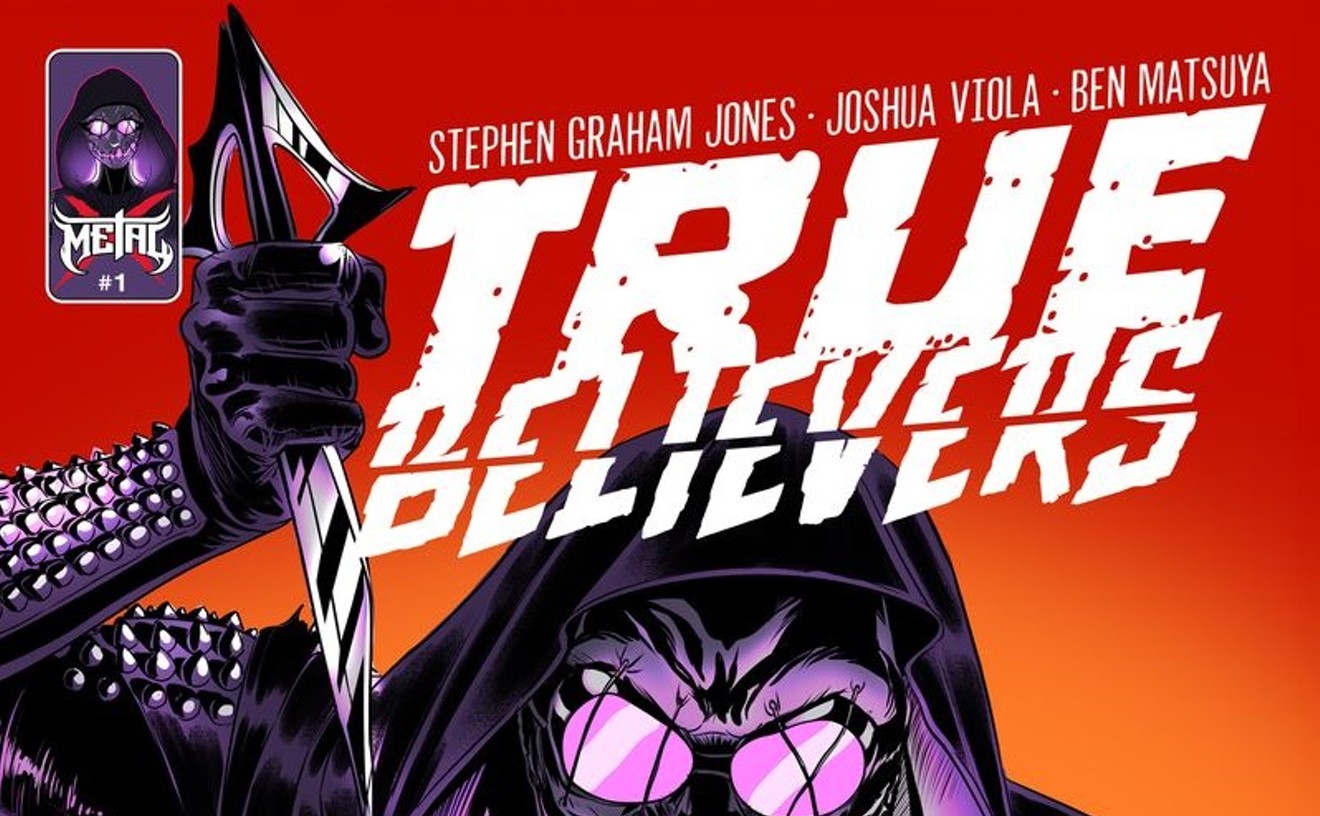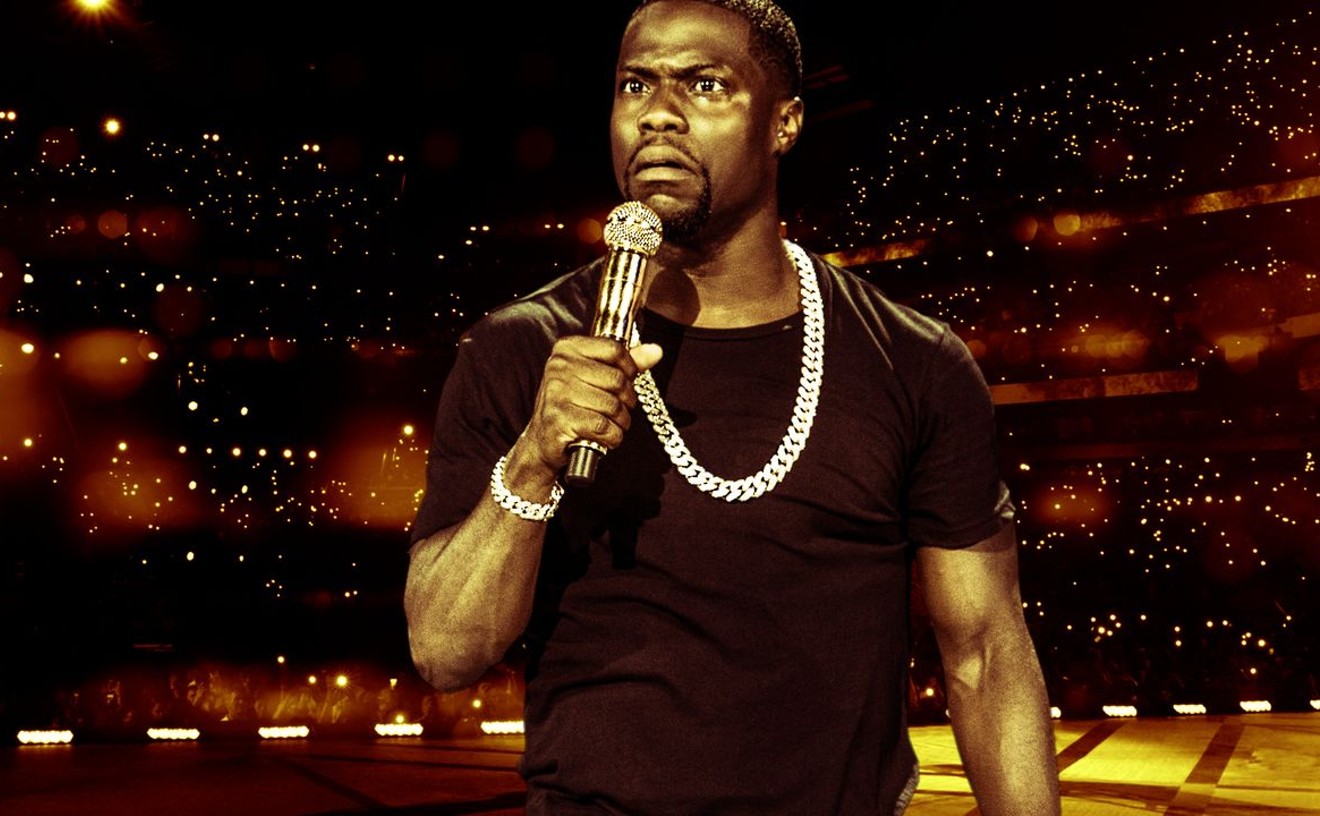See also: - Anne Waldman on her book, Gossamurmur, and keeping the world safe for poetry - Photos: Ten prisoners whose death penalties were switched to life - THEY CALL HIM MISTER MANSON!
Westword: What interested you about the story of Charles Manson?Jeff Guinn: I wanted to write about the late 1960s in America because it was such a strange, chaotic time, and I thought to interest readers in that I should pick some iconic figure or event. Charles Manson is remembered 44 years after some two nights of horrific murder, and I thought it would be interesting to explore not just what happened then, but how he got to that point. I wanted to write about his life and times, and I didn't see a Manson book that had done that.
How do you think Charles Manson was specifically influenced by the 1960s? Manson was sort of a chameleon who adjusted to the times and used the things and culture for his own advantage. He was a child of the '60s, also the '40s and '50s. The 1960s, there were many disenfranchised young people who were sort of wandering, migrating to California, particularly San Francisco, hoping to find some guru, someone who would tell them what to do and make sense of all the craziness around them. And Manson took full advantage of that. He would preach to his followers that you need to stay with me because that's where you're safe, the outside world is just a horrible place. Of course, he intended to make it even more horrible, particularly the racial violence at the times. Manson began preaching about Helter Skelter, a coming racial apocalypse where the blacks would rise up against the whites and wipe out the white race but then would not be capable of governing themselves. Manson said he and his followers were gonna hide in the Mojave Desert and come out at the end of the war and then they would be invited to rule the world. Talk about megalomania.
What were you surprised to learn in the process of researching the book?
I was able to track Manson all the way back to his childhood and interview dozens of people who'd never talked before, including his sister and cousin. The shocking thing is that everything Charles Manson was doing in San Francisco and Los Angeles in the 1960s, he was already doing even as a small child in McMechen, West Virginia, including organizing girls to beat up a boy he didn't like and then telling the principal: "It's not my fault, the girls were doing what they wanted, you can't say I'm responsible." That's the same defense he would use all those years later for the the Tate-LaBianca murders. He was never crazy. He was always a cold, calculating sociopath and he was doing these things even when he was five years old.
Did you get any insight into what you think his motivations were?
Sociopaths always feel that they haven't been treated fairly and they deserve anything they want. In the 1960s, the biggest thing to be, the most influential so far as young people were concerned, were rock stars like The Beatles. Manson fully intended to be famous. He wanted to have anything he saw that he wanted, and there were a lot of things he wanted -- stardom most of all. The murders were just one more way of protecting himself and giving his followers more reason to stay with him. In the process, so many innocent people suffered, not just the ones who died.
What do you think that readers will be surprised to learn from the book? That Manson isn't crazy and that all through his life he's been like this. He simply picks and chooses new things to add to his repertoire of evil. In the 1950s he stole some of the best lines from Dale Carnegie's How to Win Friends and Influence People. He studied Scientology not for the faith but to see how they lured members in. He stole lines from street preachers in San Francisco, from the Book of Revelation in the Bible. There was nothing unique about him, but he was so clever at putting his act together. Readers are going to see an entirely different Charles Manson than the one we've all suspected he was all these years.
Did you try to interview Manson?
Oh, you bet. I sent him a letter a day for five months. He'd lost a lot of his visitor privileges for having unauthorized cell phones in his prison cell. He finally wrote back to me. He certainly didn't want me to write the book, and he eventually gave me permission to use some of his prison art in the book.
Why didn't he want you to write the book?
Well, because it was gonna prove he's been lying about almost everything all these years. And it's all in the book and it's all documented.
Why do you think that people are still fascinated by Charles Manson?
Because he's very manipulative. If Manson had been executed as he was scheduled to be after his conviction for murder, I think he'd be mostly forgotten now, but the California Supreme Court said that death sentences were unconstitutional and so Manson's been with us ever since. Just before his final arrest he gathered his Manson family members around him and said that if he was ever arrested again he was gonna put on a "crazy Charlie" act for as long as it took for people to decide he was insane and let him go. His family members that I've interviewed now all these years later, they say that's what he's been doing pretty much for 44 years.
People are drawn to Manson because he can be anything that anybody wants him to be. To a lot of people he's a crazed lunatic who occasionally shows up snarling and threatening all sorts of mayhem even though he's in prison. To some people he's a spectacular rebel who was brave enough to stand up against the establishment and tell the truth. Other people feel sorry for him; they feel that he had a bad childhood and it was inevitable he'd turn out this way. But most of all, it's Charles Manson. He's deeply manipulative. He's very happy to put on a public act, and he's done that successfully for all these years. Again, I think if he'd been executed as scheduled now he'd be mostly forgotten.
Why do you think that the public is so attracted to these stories of sociopaths and murderers?
Well, they're always attracted to bizarre violence. In a sad sense, it's kind of entertaining. And we always are sort of afraid of cultural bogeymen, and that's what Charles Manson has become. One reason that I wrote the book is I want to demystify him. I think if we know more about who he really is, then we can keep him in better perspective.
Follow @WestwordCulture










